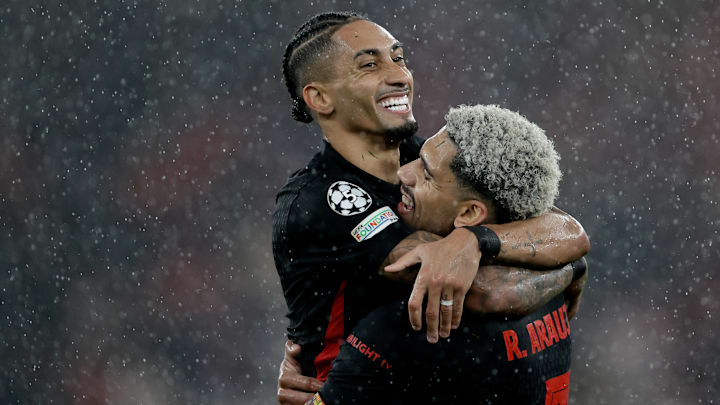Real Madrid endured a slow start to their campaign, plagued by injuries to key players such as Dani Carvajal and Aurelien Tchouameni. However, with stars like Kylian Mbappé and Jude Bellingham rediscovering their best form, Madrid has begun to assert dominance. Mbappe, criticized early in the season for falling short of expectations, has surged to just a four-goal deficit in the league’s Golden Boot race, capped by a recent hat trick vs. Valladolid.
In contrast, Barcelona’s performances have been dazzling, yet inconsistent. They’ve delivered moments of brilliance, such as their thrilling 7-1 victory over Valencia and their stunning Champions League comeback against Benfica, scoring three goals in the final 20 minutes to overturn a 4-2 deficit. Yet, the mere fact they conceded four goals to a Benfica side lacking comparable firepower highlights the squad’s recurring defensive issues.
Flick’s system emphasizes ball movement, creativity, and constant pressure, often overwhelming weaker opponents. However, this high-risk, high-reward approach can leave them exposed at the back, especially against teams capable of exploiting counterattacks against their ultra-high defensive line. It’s a style that delights fans but has shown cracks in critical matches, particularly when facing tactically disciplined opponents like Real Madrid or Atlético Madrid.
Barcelona’s challenges this season haven’t been limited to tactics alone. Injuries to key players like Lamine Yamal, Gavi, and others have disrupted their rhythm. Additionally, registration complications involving Dani Olmo and Pau Victor added an unnecessary layer of drama, further affecting cohesion. Despite these obstacles, the team has managed to stay competitive, demonstrating their immense talent and depth.
Defensive lapses, however, remain a glaring concern. While players like Ronald Araujo, Jules Kounde, and Pau Cubarsi form a strong backline, questions remain regarding their fortitude against tougher attacks. Improving and maintaining defensive solidity will be vital if Barcelona hopes to contend for multiple trophies this season.
Ultimately, Flick’s philosophy is a double-edged sword. It has propelled Barcelona to memorable victories but exposed their susceptibility to counter-attacking play. As they pursue Real Madrid in La Liga and aim for Champions League glory, the team must strike a balance between their offensive identity and defensive discipline.
With the talent at their disposal and Flick’s tactical acumen, Barcelona’s ceiling knows no boundaries. However, whether their approach can translate to sustained success in the biggest moments is the defining question of their season.
